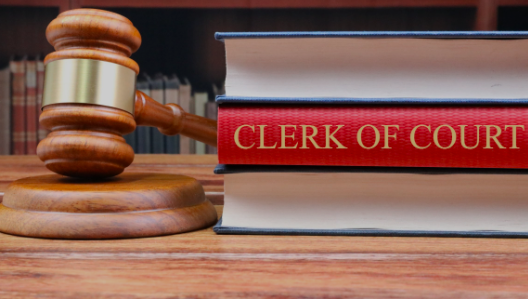
Court Clerks are indispensable members of the legal community responsible for managing administrative tasks within the courtroom. They act as the bridge between the legal system, judges, attorneys, and the public.
2 Core Responsibilities
- Record Keeping: Court Clerks meticulously maintain records of court proceedings, ensuring accuracy and accessibility.
- Document Preparation: They prepare and distribute court orders, judgments, and other legal documents.
- Manage Case Files: Organizing and managing case files is a significant part of their responsibilities.
- Assist Judges: Court Clerks provide support to judges during trials, ensuring proceedings run smoothly.
- Administer Oaths: They administer oaths to witnesses and jurors.
Educational and Professional Qualifications
1 Academic Requirements
- Educational Background: A high school diploma is the minimum requirement, but many positions may necessitate an associate or bachelor’s degree in legal studies or a related field.
2 Specialized Training
- Court Clerk Certification: Many jurisdictions require Court Clerks to obtain certification through specialized training programs.
- Legal Software Proficiency: Proficiency in legal software is becoming increasingly important for Court Clerks.
Navigating the Legal Landscape
1 Interaction with Legal Professionals
- Collaboration with Judges: Court Clerks work closely with judges, ensuring they have the necessary information for decision-making.
- Coordination with Attorneys: They liaise with attorneys to facilitate the smooth flow of legal proceedings.
2 Interactions with the Public
- Assisting the Public: Court Clerks play a vital role in assisting the public, providing information on cases and court procedures.
- Maintaining Public Records: They ensure public records are accessible while adhering to privacy regulations.
Chapter 4: Challenges Faced by Court Clerks
4.1 Workload and Stress
- Heavy Workload: Court Clerks often face heavy workloads, particularly in busy courtrooms.
- Dealing with Stress: The nature of the job can be stressful, given the importance of maintaining accuracy in legal documentation.
2 Technological Challenges
- Adapting to Technology: As court systems evolve, Court Clerks may face challenges in adapting to new legal technologies.
- Cybersecurity Concerns: The digitalization of legal processes brings forth concerns about the security of sensitive legal information.
Significance of the Role
1 Upholding Judicial Integrity
- Ensuring Fairness: Court Clerks contribute to upholding the integrity of the legal system by ensuring fair and accurate documentation.
- Guardians of Legal Records: They act as guardians of legal records, preserving the authenticity of court proceedings.
2 Supporting Access to Justice
- Assisting Pro Se Litigants: Court Clerks play a crucial role in assisting individuals representing themselves in court (pro se litigants).
- Providing Information: By offering information to the public, they contribute to a more transparent and accessible legal system.
Evolution in the Digital Age
1 Embracing Legal Tech
- Digital Case Management: The integration of digital case management systems has transformed the way Court Clerks handle cases.
- E-Filing Systems: E-filing systems have streamlined document submission processes, reducing paperwork.
2 Remote Court Proceedings
- Virtual Courtrooms: The rise of virtual courtrooms has necessitated adaptation to new technologies for Court Clerks.
- Challenges and Opportunities: Remote proceedings present both challenges and opportunities for Court Clerks.
The Future Landscape
1 Emerging Trends
- Blockchain in Legal Records: The use of blockchain technology may enhance the security and authenticity of legal records.
- Artificial Intelligence: AI tools may assist Court Clerks in document analysis and case management.
2 Continuous Professional Development
- Adapting to Change: Court Clerks must embrace continuous learning to stay abreast of changes in legal procedures and technologies.
- Professional Networks: Building and participating in professional networks can provide valuable insights and support.
Conclusion
In conclusion, Court Clerks are unsung heroes in the legal realm, playing a pivotal role in maintaining the integrity and accessibility of legal proceedings. As the legal landscape evolves, so does the role of Court Clerks, who must navigate technological advancements, cope with workload challenges, and uphold the principles of justice. The future promises both challenges and opportunities for these guardians of legal records, making their role more indispensable than ever in the ever-changing world of law.





